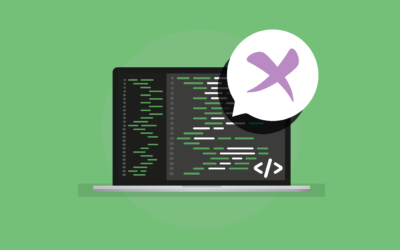Citizen Developer Explained


Nov 10 · 3 min read
Gartner says “A citizen developer is an employee who creates application capabilities for consumption by themselves or others, using tools that are not actively forbidden by IT or business units. A citizen developer is a persona, not a title or targeted role. They report to
a business unit or function other than IT”1. More people can be citizen developers if they use no code platforms like Legito.
Citizen developers are also users
Using citizen developers, you can quickly identify and make improvements to a business solution. Citizen developers are also users. They will be among the first to see an opportunity to make useful changes or small tweaks to alleviate glitches. Citizen developers want the solution to be the best it can be. They know the changes that are needed to keep track of business developments. You don’t have to wait to requisition a developer from the IT team or an external supplier, and you don’t need to explain the required changes.
Citizen developers will be part of the business team they serve. Colleagues know who they are. If colleagues see something they would like to add or change, they don’t need to hunt around the organisation for someone to lobby, and they don’t need to explain the needs in emails. Colleagues can walk across the office or have a Teams call to talk to a citizen developer in terms they both understand. Water cooler meetings can become a trigger for improvements. Change happens quickly. Citizen developers don’t need lengthy solution specifications.
Back office
Some back office work is routine and risks going unnoticed until it goes wrong. Back office professionals want and need their work to run like clockwork, and to serve the organisation in the most supportive way possible. There’s a big difference between ‘just good enough’ and ‘exactly what we need’. The latter requires the knowledge of an insider and an appreciation of the nuances and exceptions that accompany all back office work. You just don’t get that level of intuition if you rely on traditional developers
Not everyone is suited to be a citizen developers. That’s OK – you need one or two people who have a creative spirit and a spark to make things better, and the confidence to dig a bit deeper within a software solution. Building solutions with Legito is a way to acquire a new skill that gets noticed by their colleagues and management. It’s an opportunity that is not confined to any management level.

Citizen Developer Explained


Nov 10 · 3 min read
Gartner says “A citizen developer is an employee who creates application capabilities for consumption by themselves or others, using tools that are not actively forbidden by IT or business units. A citizen developer is a persona, not a title or targeted role. They report to a business unit or function other than IT”1. More people can be citizen developers if they use no code platforms like Legito.
Citizen developers are also users
Using citizen developers, you can quickly identify and make improvements to a business solution. Citizen developers are also users. They will be among the first to see an opportunity to make useful changes or small tweaks to alleviate glitches. Citizen developers want the solution to be the best it can be. They know the changes that are needed to keep track of business developments. You don’t have to wait to requisition a developer from the IT team or an external supplier, and you don’t need to explain the required changes
Citizen developers will be part of the business team they serve. Colleagues know who they are. If colleagues see something they would like to add or change, they don’t need to hunt around the organisation for someone to lobby, and they don’t need to explain the needs in emails. Colleagues can walk across the office or have a Teams call to talk to a citizen developer in terms they both understand. Water cooler meetings can become a trigger for improvements. Change happens quickly. Citizen developers don’t need lengthy solution specifications..

Back office
Some back office work is routine and risks going unnoticed until it goes wrong. Back office professionals want and need their work to run like clockwork, and to serve the organisation in the most supportive way possible. There’s a big difference between ‘just good enough’ and ‘exactly what we need’. The latter requires the knowledge of an insider and an appreciation of the nuances and exceptions that accompany all back office work. You just don’t get that level of intuition if you rely on traditional developers.
Not everyone is suited to be a citizen developer. That’s OK – you need one or two people who have a creative spirit and a spark to make things better, and the confidence to dig a bit deeper within a software solution. Building solutions with Legito is a way to acquire a new skill that gets noticed by their colleagues and management. It’s an opportunity that is not confined to any management level.
More Weekly Articles



















